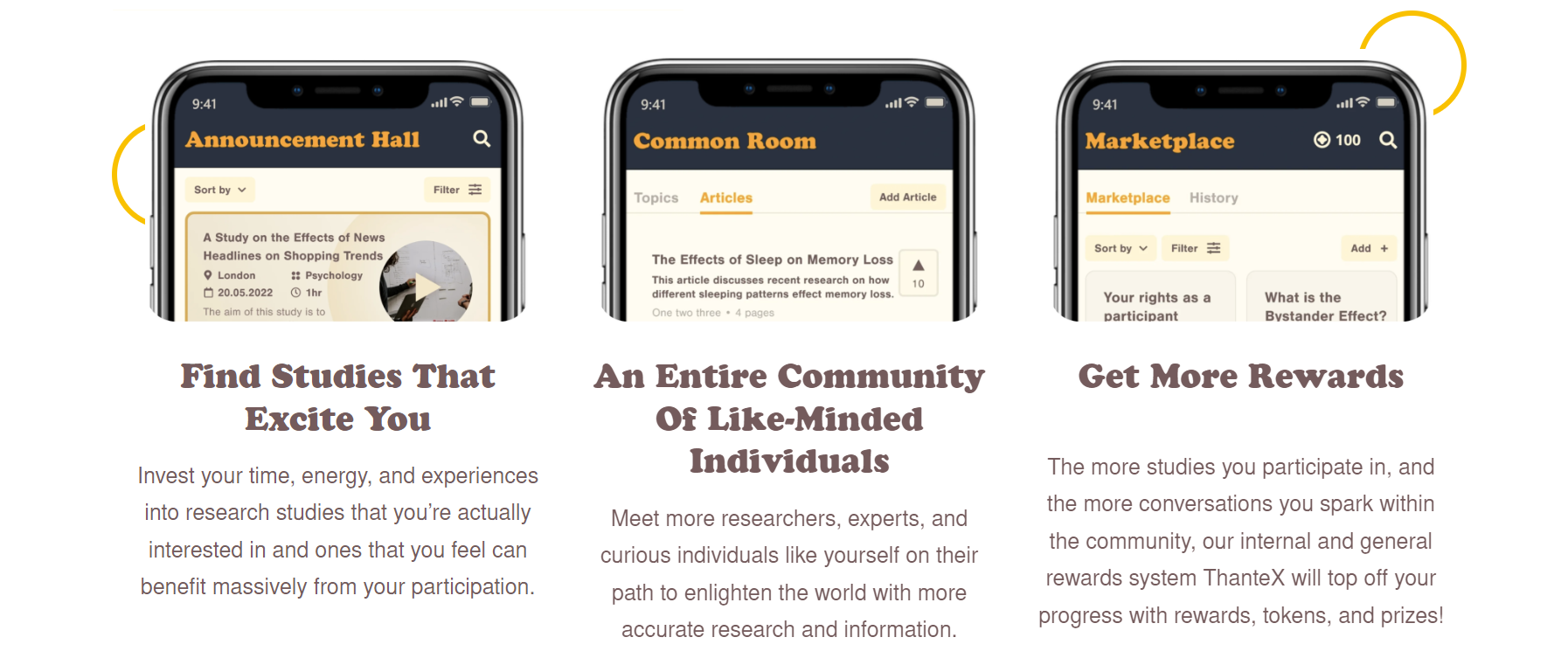It’s not always about the reward!


It’s tempting to assume, as a researcher, that the only thing that research participants are interested in when considering taking part in research studies is the monetary reward. Afterall, who wouldn’t mind receiving a cash prize or a handsome shopping voucher? Well, the real answer is, not everyone.
There’s a relatively small body of literature on the reasons why people take part in research studies. What this literature suggests is that the monetary reward associated with taking part in a research study is second, and sometimes even third, to other reasons1. One of these other reasons is altruism. Loosely defined, altruism is the act of giving without expecting anything back.
Think of it like this. You’re an MSc student at a local London university, studying Psychology. You’re in your final term and you’re working on your dissertation project, which has to be an original piece of scientific research on a Psychology related subject. You decide to do some research on peoples’ views on how important charites are to society. You’ve have the green light from your dissertation supervisor and the relevant university bodies to go ahead and recruit research participants to take complete your survey and collect your data. Your dissertation supervisor says there are no funds available to entice research participants with monetary rewards. So, you resort to asking your close friends and members of your family.
Maybe they’ll take part in your research study out of pity! Thankfully, some do. You’ve managed to successfully recruit 8 research participants from your friends and family, but you need at least 30 participants! You have two options: either run away to the Caribbean and live of the land or start using participant recruitment platforms to help you find research participants. You choose the latter. You find a platform that helps you advertise your research study to recruit research participants for your survey. To your surprise, you find that many people have reached out to you to express their interest in completing your survey. In fact, you’re so surprised by this, that you ask a few participants why they decided to take part, even though there’s no standard reward, like cash or a prize draw for a voucher. You find that participants’ responses were based around several themes: “if it can help somebody” and “nothing to lose”.

These themes are very similar to the themes found by Peel, Parry, Douglas and Lawton (2006)2 when they conducted in-depth interviews on participants’ accounts of why they took part in a repeat-interview study exploring newly diagnosed patients’ perceptions of diabetes service provision in Lothian, Scotland. Every year, thousands of students up and down the country find themselves in a position identical to the scenario described above. However, many are never able to find those much-needed altruistic participants. I suspect one reason for this, is that researchers don’t always state clearly what their research study involves to potential participants. It’s good practice to take the necessary time to write a clear and enticing description of your study when advertising it. Taking the time to highlight the areas of your study that you think specific participants will find most interesting. For example, if you’re conducting a virtual reality study on gamers and you think almost all gamers would find the experience entertaining, tell them!
In 2022, I launched WeParticipated, a mobile app that lets researchers advertise their research study to hundreds of potential participants already on the platform. One thing I’ve repeatedly noticed is researchers underselling their studies. Even when the study itself is extremely engaging, novel and completely fun. Some researchers will describe their study in one sentence! If I had to give one piece of advice to researchers based on my experience with WeParticipated, it’s to remember to highlight all the interesting and unique aspects of your study whenever you’re advertising it, because not all participants want money. Some participants just want to help!
If you want to become one of these amazing participants, sign up to the WeParticipated app here: www.weparticipated.co.uk/#IWantToTakePartInResearch
Prince Kouassi, PhD
Director & Founder, WeParticipated

1Clark, T. (2010). On ‘being researched’: Why do people engage with qualitative research? Qualitative Research, 10(4), 399-419.
1,2Peel, E., Parry, O., Douglas, M., & Lawton, J. (2006). “It’s no skin off my nose”: why people take part in qualitative research. Qualitative Health Research, 16(10), 1335-1349.
1Sánchez, S., Salazar, G., Tijero, M., & Diaz, S. (2001). Informed consent procedures: responsibilities of researchers in developing countries. Bioethics, 15(5‐6), 398-412.